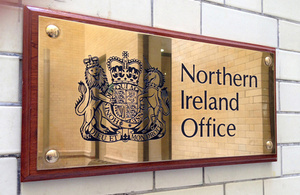Pond project pays off for great crested newts in Essex
The district level licensing initiative has led to the creation or restoration of 40 ponds across the county since it launched in March this year.
Investing in habitat
The scheme works by taking payments from building developers and investing them in four times the number of pond habitats that would have been impacted by their construction projects.
In the past, landowners and housing developers in Essex had to apply for a licence before building on or around the newts’ pond habitat – on a site-by-site basis. Seasonal restrictions led to delays and uncertainty over the costs and scheduling of planned development.
One simple application
Now, licensing is applied at a district level. This ‘landscape-scale’ approach means that developers need only make a single application and payment to join their local, area-wide scheme.
The one-off payment covers the creation, restoration, maintenance and monitoring of ponds around the area for 25 years, in locations chosen to provide the best habitat and most benefit.
Building back greener
The initiative contributes to the government’s plans to fast-track building projects, ‘Build Back Greener’ and fuel the UK’s economic recovery. And it helps put an end to the costly delays and uncertainty faced by developers building in areas where great crested newts are present.
But newts aren’t the only ones to benefit. Across the country the rich, watery habitat supports two-thirds of Britain’s freshwater plant and animal species, as well as provides social and economic benefits for local communities, including jobs.
Largest scheme yet
Essex’s scheme is the largest district level licensing scheme to date, covering all 15 of the county’s planning authorities – an area of around 3,600 square kilometres.
The area has traditionally been a stronghold for the great crested newt, which are present in around 46% of the county’s ponds. But they’re under threat.
Despite being defended under UK and EU law, the iconic and rare amphibian has seen its preferred pond habitat decline by 50% over the last 60 years. And that’s contributed to the dramatic decline in the creature’s population. District level licensing aims to reverse that decline.
Essex was selected as a priority for the scheme due to the scale of development in the county.
Jeremy Potter, chairman of the Essex Planning Officers Association, said:
The new district licencing scheme provides a real partnership approach to provide great new habitat for great crested newts, crucially in the right locations, whilst also providing a simpler, quicker and more effective option for developers to fulfil their important obligations.
Neil Harvey, natural environment manager at Essex County Council’s Place Services, said:
We see this as more than just about securing and enhancing the conservation status of great crested newts across Essex. It also provides an opportunity to start working with a range of partners – corporate, public and private – with whom we can progress wider ambitions for the strategic recovery of biodiversity throughout the landscape.
Miranda Cooper, conservation and land manager at Essex and Suffolk Water, said:
We have welcomed being involved in this ambitious and collaborative project with Natural England. The recent restoration to one of the ponds at Abberton has greatly benefitted the wider ecology of our Abberton Reservoir site and truly compliments the vision of district level licensing to strategically support the stability and resilience of local great crested newt populations.
Aidan Lonergan, West Anglia area manager at Natural England, said:
This scheme is one example of how a fresh look at the relationship between wildlife and the growth agenda might achieve more harmony. It is one that illustrates our ambition to find ways to work with development – at a landscape-scale – in order to restore nature and not merely slow its rate of loss, as well as ensure new developments are built greener from the outset.
Essex is one of 77 local authorities with district level licensing schemes. Natural England is working to expand the initiative to 150 local authorities across the country, as part of a programme funded by the Ministry of Housing, Communities and Local Government.
More about great crested newts
- Great crested newts are a European Protected Species. Under the Habitats Directive, it is an offence to capture, kill, injure or disturb them or their habitat without a licence from Natural England. Although rare across Europe, they can be locally abundant in England.
More about district level licensing
- This new licensing approach to authorising development affected by great crested newts is part of a larger programme to reform protected species licensing by focusing conservation effort where it will create maximum benefit. It aims to leave the environment in a better state than before.
- Previously, licences were only granted on a site-by-site basis. This missed opportunities to manage populations of great crested newts on a landscape scale and resulted in habitat for newts being squeezed around development, sometimes in disconnected patches.
- Individual site-by-site licences are still available. Since 17 February 2020, there is now a charge for these licences. In areas where there is a district level licensing scheme, joining it will be the quickest option to enable development that affects great crested newts.
- Natural England is working in partnership with Farming and Wildlife Advisory Group for the Eastern Region, local authorities including Essex County Council, the Ministry of Housing, Communities and Local Government, Wildlife Trusts including that for Essex, Essex and Suffolk Water, and more.

